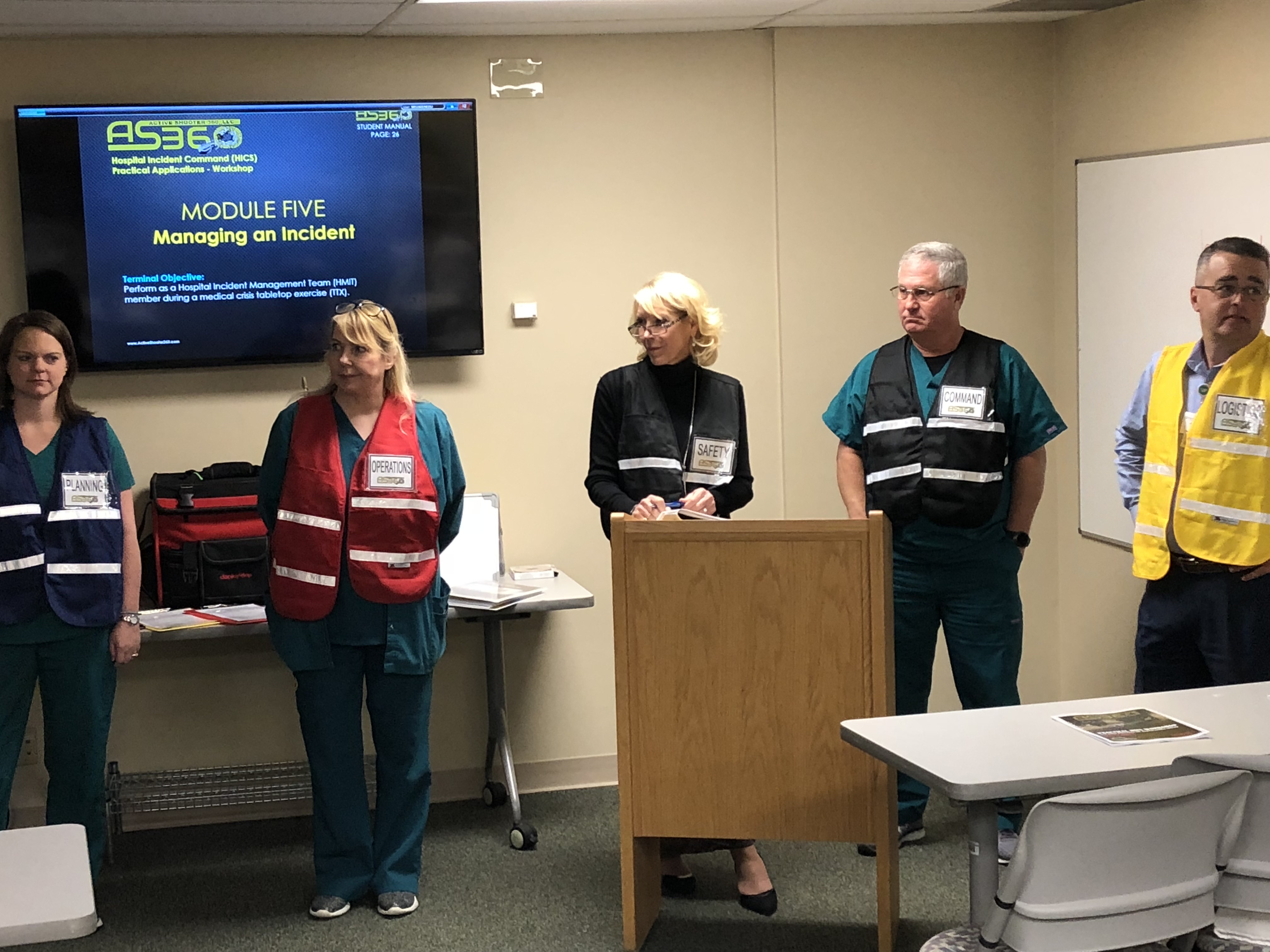The Incident Commander is responsible for everything, which means that it’s important for the IC to lead an Incident Management Team (IMT) where Operations, Logistics, Planning, and Safety is delegated to trained and trusted partners. A detailed exploration of Command responsibilities is available in the National Incident Management System and Hospital Incident Management System documents.
Key Incident Commander duties are as follows:
- Organize the Incident Management Team quickly
- Take charge, wear a command vest, communicate from a command post
- Collaborate with the Operations, Logistics, Planning, and Safety functions
- Assume responsibility for functions not delegated
- Assume accountability
In this blog, Active Shooter 360 briefly explores two issues not usually addressed in traditional incident command courses. Namely, who should be the Incident Commander, and how is command accomplished. Let’s talk about the who question first. In the military and first responder agencies, there is a formal rank structure that specifies who is in Command. In healthcare facilities, churches, schools, and private entities, it’s often unclear who should be running things when a surprise crisis event decimates normal functions.
The traditional boss in an organizational structure, such as the President, CEO, Director, or Spiritual Leader, may not be the best crisis Incident Commander because they often have policy responsibilities. Likewise, skilled practitioners managing routine operations may not be suitable for the Incident Commander position because they have to focus on operational duties. For example, a medical Charge Nurse is needed for patient care, and cannot simultaneously manage a hostile event or a natural disaster. Think about selecting individuals that have military or first responder backgrounds on your staff. Perhaps there are administrators that can be trained to lead an Incident Management Team.
Key Point – don’t base Incident Commander selection on one’s position in the hierarchy or their traditional operations skills.
Some of our clients have never addressed the question of who should be the Incident Commander at a given time. Your organization should identify who is going to be the crisis manager when a disaster or hostile event strikes. This means entities on a 24/7 schedule should specify who would be the Incident Commander during night shifts or holidays where the usual support staff is not present.
Key Point – It should be clear at every shift change who the Incident Commander is, or who would be called-in during non-business hours.
Key Takeaway:
When there is a crisis or disaster, someone has to step up and run things without confusion. The Incident Commander must be trained, have authority, and have a competent incident management team to ensure effective crisis management. To repeat, the Incident Commander must be vetted, trained, and maintain proficiency through drills and exercises.
What are your thoughts?



